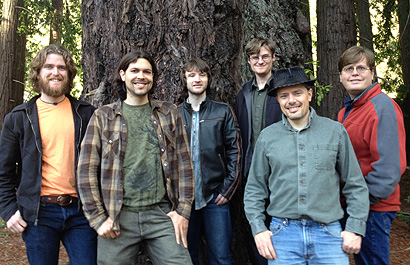Campus News
‘Prom Week’ breaks new ground in computer game design
Nominated for a technical excellence award at the Indie Games Festival, ‘Prom Week’ is a game about social relationships driven by an innovative artificial intelligence system.


All the adolescent angst, hallway drama, and social scheming of the week before the high school prom play out in Prom Week, an online computer game developed by a team of students and faculty at UC Santa Cruz. The possibilities are endless in the unscripted story lines of the game, which uses a sophisticated artificial intelligence system to enable players to shape the social lives of a group of 18 high school students.
“Prom Week is a game where the game play revolves around social interaction,” said lead developer Josh McCoy, a graduate student in UCSC’s Baskin School of Engineering who led the development of the artificial intelligence (AI) system at the core of the game. “This was AI-based game design, so the challenge was to create a model of social interaction and then turn it into a game that’s vibrant and fun to play.”
In January, Prom Week was selected as a finalist for the technical excellence award at the upcoming Independent Games Festival (IGF) in San Francisco. It is also in the running for the audience choice award, and a special preview release of the game has been made available on the team’s web site. The game’s official release is on Valentine’s Day (Tuesday, February 14), when it will be available to play for free on Facebook and other web platforms.
In the game, each “level” is a different character’s story, and the player is presented with goals for the character, such as getting a date with that cute boy in algebra class. The player chooses social actions for their character to take, such as flirting or bragging, and the game plays out the resulting interaction with dialogue and responses that depend on the personalities and back stories of the characters involved. The game’s AI system not only generates an interaction appropriate to those characters, it also keeps track of the evolving relationships among the characters as the game proceeds.
“What the characters say to each other and how they respond is dependent on this growing back story of interactions that the player has caused to happen,” explained Michael Mateas, associate professor of computer science in the Baskin School of Engineering and director of the Center for Games and Playable Media at UC Santa Cruz.
Mateas and Noah Wardrip-Fruin, also an associate professor of computer science, are the faculty advisers and executive producers for the Prom Week team. They run the Expressive Intelligence Studio (EIS), which focuses on the development of advanced AI to enable new kinds of playable experiences. Prom Week combines rich social simulation with concrete characters in a way that hasn’t been done before, Mateas said. “In most games today, you either have concrete characters that have specific personalities and pre-authored dialogue, or you have rich social simulation like you find in the Sims, but none of the characters has a very well-specified personality or back story.”